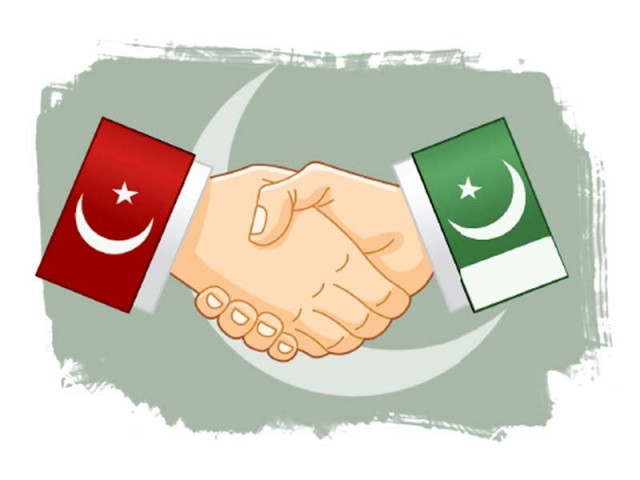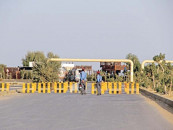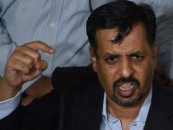Turkish protests: ‘Islam versus secularism not the root cause of all problems’
Speakers say this narrative could play into the hands of military and derail democratic process.

Hyder said the onus lay on Pakistan to change the relationship from that of a “quasi donor-recipient” to one of “strategic partnership.” ILLUSTRATION: JAMAL KHURSHID
The ongoing protests in Turkey should not be termed as a confrontation between Islam and secularism because the reasons for these protests are tied to a complex set of national issues, speakers at a discussion said on Monday.
The intellectual discussion, titled “Turkish Spring, Iranian Winter?” was organised by the Sustainable Development Policy Institute (SDPI) and focused largely on the widespread protests which were sparked by the planned remodelling of Istanbul’s Teksim Gezi park.The speakers also discussed the protest’s implications on Pakistan-Turkey relations.
Raza Naeem, a social scientist and literary critic who visited Turkey in 2012, started his presentation with a brief biography of the famous Turkish poet Nazim Hikmet. Naeem said it was a beautiful coincidence that the protests had begun just days before the 50th anniversary of the revolutionary poet, which fell on June 3.
Naeem offered a left-wing analysis of the Turkish situation, referring to Prime Minister Recep Tayyip Erdogan, who has been the target of protesting hordes and whose government has used brute force to disperse them.
He said Erdogan had built up support by developing a new bourgeois class and by implementing populist social reforms in the health and education sectors.
Naeem added that Erdogan had tried to depoliticise the country’s youth and enforce neoliberal policies. His adventurous foreign policy in Syria and repression against Kurdish political prisoners had increased his authoritarian traits over time, he said.

Naeem said the roots of social conservatism preached by the ruling Justice and Development Party — known by its Turkish acronym, AKP — can be traced back to the 1980 military coup which paved the way for right-wing parties to enter mainstream politics. He warned against a shift in the civil-military balance if the protests were interpreted in an oversimplified manner.
“I hope better sense prevails,” Naeem said. “I fear that if the Western press keeps harping on about Islam versus secularism in Turkey, it might give the military an excuse to step in and end democratic rule.”
Former diplomat Tariq Hyder read from a recently published article he had written on the protests in a Pakistani context. Hyder said the Turkish dilemma centred on the interplay between different concepts of modern Turkish identity, religion’s place in society and the degree of tolerance for dissent. He praised Erdogan for rejuvenating Turkey’s depressed economy but said the prime minister should not underestimate the protesters and reach out to them.
He said Erdogan’s vision of a strong Turkey-Pakistan partnership was also relevant. The AKP government would like Pakistan to use its geostrategic location to its advantage, balance its civil-military relationship and normalise relationships with its neighbours, said Hyder.
But Hyder insisted that the onus lay on Pakistan to change the relationship from that of a “quasi donor-recipient” to one of “strategic partnership.”
SDPI Chairperson Shafqat Kakakhel was of the opinion that the Turkish protests bore a closer resemblance to riots witnessed in London, Paris, Athens and Sweden than the ones that occurred during the Arab spring.
Published in The Express Tribune, June 11th, 2013.


















COMMENTS
Comments are moderated and generally will be posted if they are on-topic and not abusive.
For more information, please see our Comments FAQ